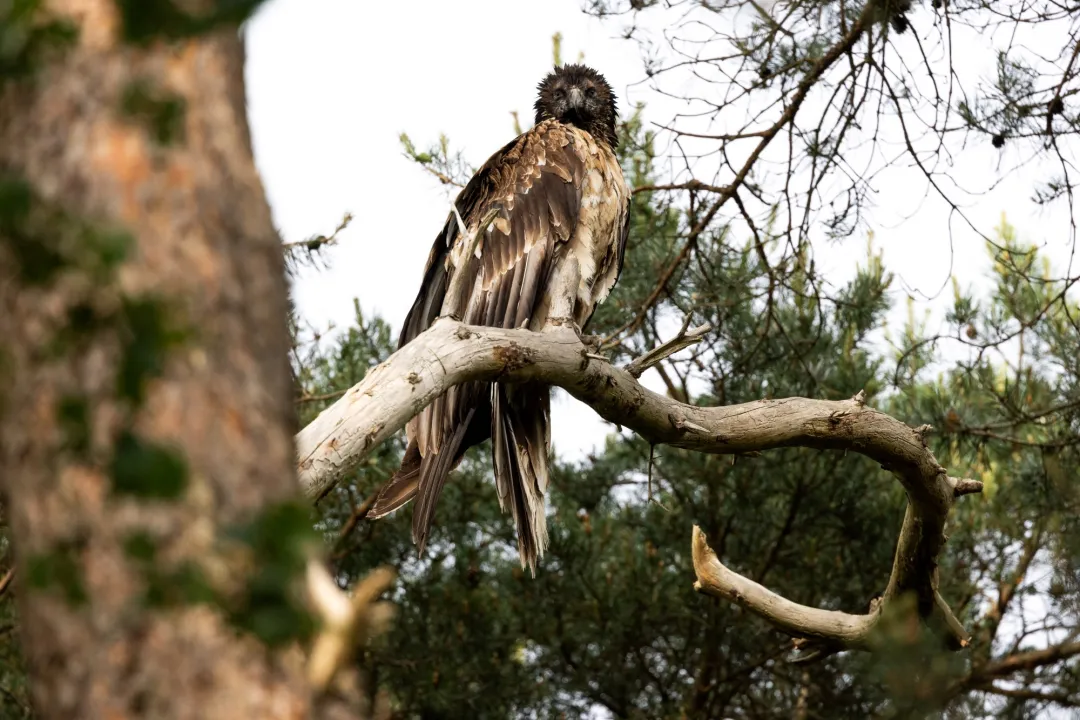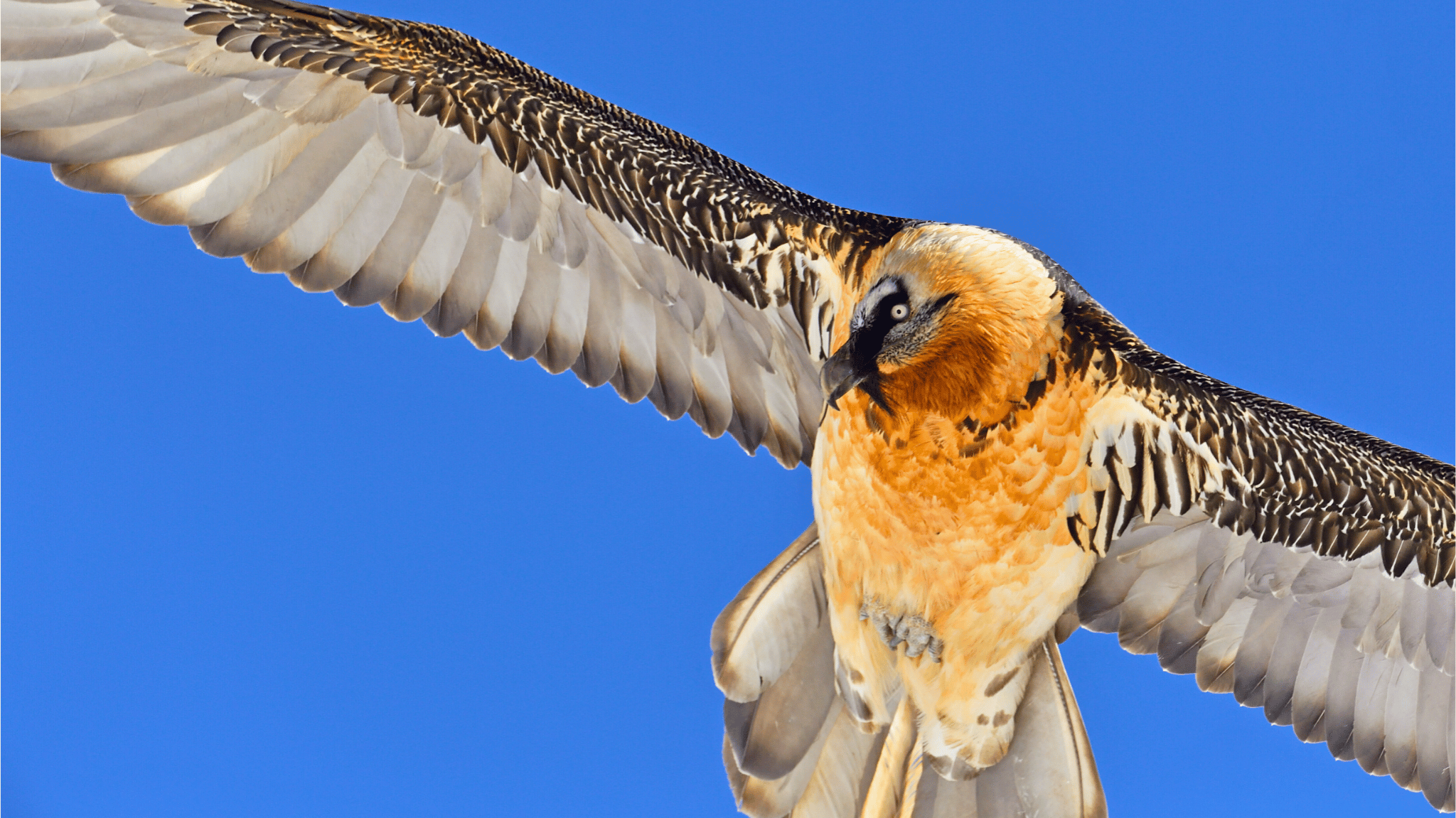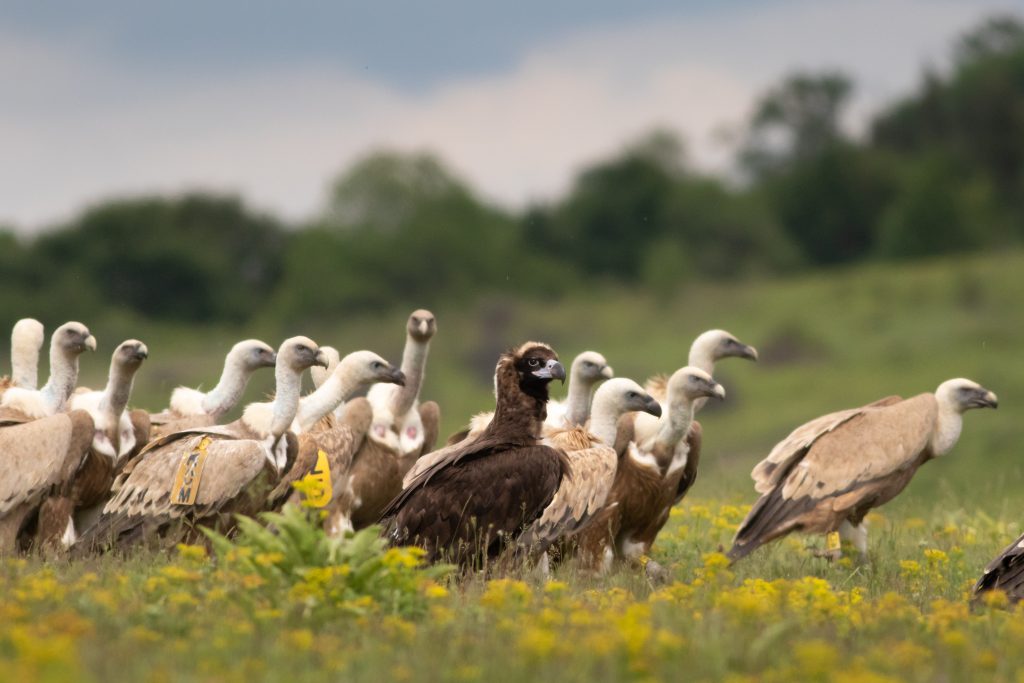
Vultures may not be the prettiest of birds: they are often reviled for their looks, and have completely unfounded reputation as revolting and gross with even naturalist Charles Darwin described them as “disgusting”. These scavengers do the dirty work of cleaning up after death helping to keep ecosystems healthy and prevent the spread of disease.
Where can you find vultures?
With the exception of Australia and Antarctica, the 23 species of vultures are found across the globe and are classified into two groups: Old World Vultures and New World Vultures. Although all species are similar, these two groups are actually not very closely related and the similarities in their appearance or morphology is an example of convergent evolution . Seven species of vultures make up the New World vultures that are found throughout the Americas. The Old World vultures found in Africa, Asia and Europe are made up 16 different species and closely related to eagles, kites and hawks.
Here at the Vulture Conservation Foundation, we work with the four species that are found in Europe, the bearded, cinereous, Egyptian and griffon vultures.
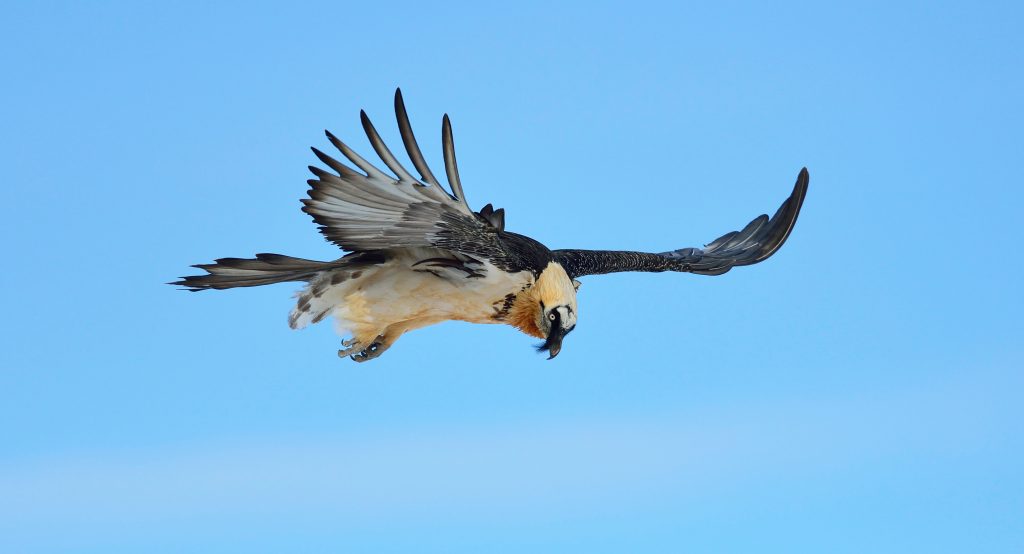
Bearded Vulture in flight © Hansruedi Weyrich 
Cinereous Vulture in the wild © Bruno Berthemy 

Griffon Vulture in flight © Nello Petito
What do vultures eat?
Vultures are specialised scavengers feeding on the carcasses of dead animals and are brilliant adapted for this. They all have a large wingspan, which allows them to soar with little effort as they search below for a meal using some of the best eyesight in the animal kingdom and are able to spot a carcass many km away.
Many vultures have a semi-bald head, sometimes without feathers or with simple down which is thought to help with preventing facial overheating but also helps prevent feathers getting stuck together with flesh and blood when feeding. Their large hooked beaks are the perfect tool for tearing apart and eating the remains of dead animals. Vultures are brilliantly adapted to scavenging and there are very few examples of the birds taking live prey.
Why are vultures important?
It’s their scavenging lifestyle that means the importance of vultures is often overlooked, but they are vital for the healthy functioning of ecosystems, in many cases keeping them free of contagious diseases.
Vultures have an extremely corrosive stomach acid that allows them to consume rotting animal corpses. These scavenged leftovers are often infected with anthrax, botulinum toxins and rabies, that would otherwise kill other animals.

The importance of these magnificent birds is only truly felt when they suddenly disappear from an ecosystem. When vulture populations crashed in India as a result of feeding on the remains of animals that were treated with the veterinary drug diclofenac the impacts nearly caused a public health catastrophe. The feral dog population leapt by 7 million, to 29 million animals over an 11-year period and caused an additional 38.5 million additional dog bites. It’s believed as a result of these bites that deaths from rabies increased by nearly 50,000 in that time costing the Indian government $34 billion to fight the spread of the disease.
The work of vultures is what is often referred to as ecosystem services and this example from Spain illustrates the benefit the people receive from these birds, often without even realising.
Why are vultures endangered?
As a result of persecution, poisoning, habitat loss and changes in farming practices tragically 16 of the 23 species of vultures are considered vulnerable, threatened, or endangered with the population of several species declining by 90% in some areas of the world.
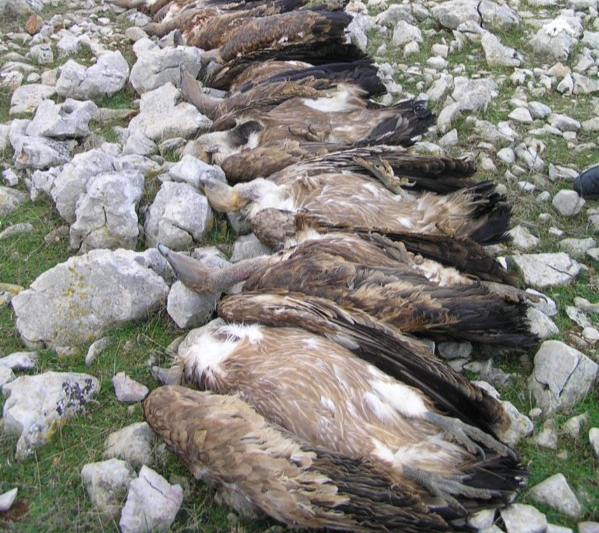
Across the globe there are many organisations working to conserve vultures, us here at the Vulture Conservation Foundation are working across Europe to protect and restore the bearded, griffon, cinereous and Egyptian vultures to their former range across the continent. This work involves coordinating the Bearded Vulture Captive Breeding Network to release birds into the wild in several reintroduction projects, fight against illegal wildlife poisoning such as the #BalkansAgainstPoisoning – Balkan Anti-Poisoning Project, use technology to track the movements of birds to help the most effective conservation measures to take, and reintroduce birds to areas where they have disappeared.


